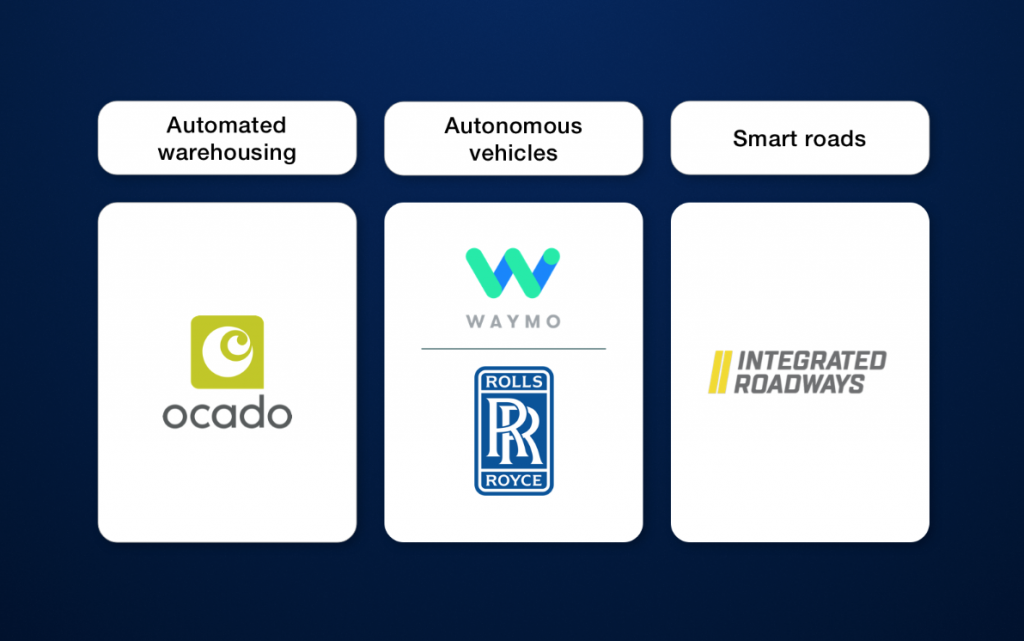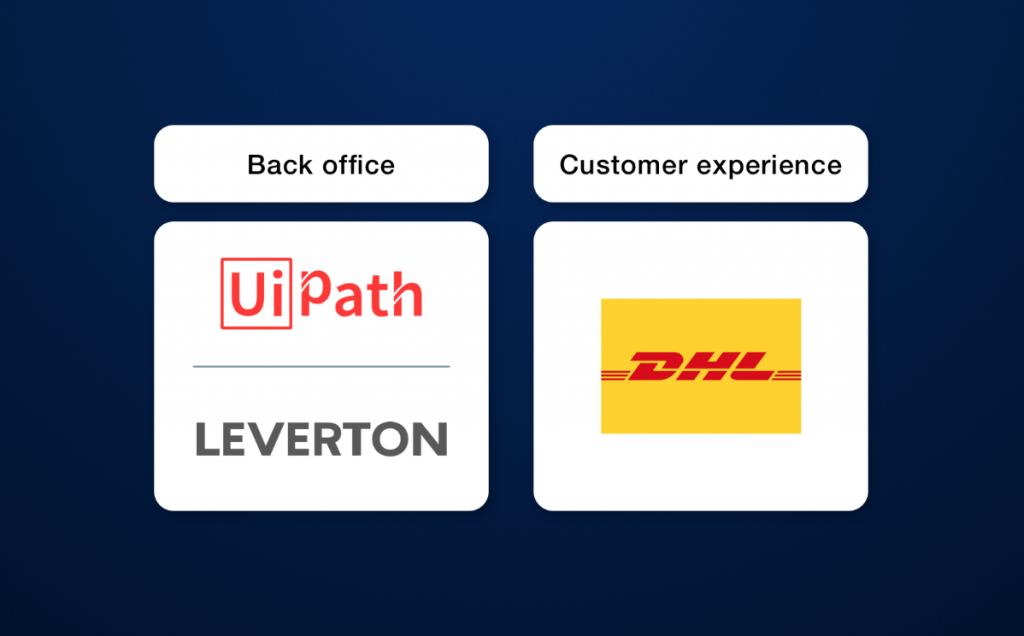Table of Contents
Artificial intelligence is the technology that modifies many fields of activities and it bears a real benefit for various industries. Logistics area is the one where the application of AI shows serious advantages. This article covers how AI in logistics is used to solve the main issues in the industry.
AI in logistics: 5 use cases
McKinsey, an international consulting company, has conducted analysis and estimated that integration of AI in manufacturing or supply chain will lead to $1.3 -2 trillion profit per year for large companies.
The first point why AI is beneficial – it automates working processes and saves time. That is why giants like Amazon or Google successfully integrate AI into their logistics processes.
You will find below 5 uses cases of AI in logistics.
Automated warehouse processes
Data collection, inventory processes, etc. – everything is modified at a warehouse with the help of AI. Efficiency is improved, and it leads to a profit increase. In particular, AI predicts product demand and it helps organize commodities shipping to warehouses at lower prices, saving on transportation. In fact, many routine tasks become automated.
Successful example
For example, the British online supermarket Ocado Group uses a robot that is capable of fulfilling 65,00 orders within one week. A robot is lifting, sorting and moving items. As a result, order processing is accelerated and customers get everything much faster.
A robot has AI-based software that makes it possible to recognize inventory and organize everything. Also, in the near future, a robot will be capable of monitoring quality control.
Self-driving vehicles
Perhaps, everybody has already heard about autonomous cars that successfully move from A point to B point without human’s intervention. Apart from the integration of AI into passenger cars, large cargo trucks also make use of this technology. They may carry cargoes around the country completely autonomously.
Successful example
Waymo LLC company became the first one who has created an autonomous taxi service for public use. Now the company is working on self-driving trucks creation. Waymo plans to implement it in order to strengthen the logistics area and increase the safety level.
In addition, famous British automaker Rolls-Roys collaborates with Intel to create autonomous ships. In 2018 AI system for ships was launched, and it makes it possible to monitor and recognize all objects lying in the water nearby, select an optimal route and monitor engine condition.
Thus, delivery is performed faster via an optimal route.
Smart Roads
In addition to smart cars, roads also become smarter. Such roads are equipped with solar panels and LED lights which have a different type of illumination like warning signals to inform drivers about any changes on roads.
Besides that, solar panels have a heating system and it helps avoid road freezing. In a global sense, the delivery process becomes faster since there are no delays due to road or weather conditions.
Successful example
Integrated Roadways PVT LTD has built Smart Pavement system, and now this system is under a 5-year testing mode in Colorado state. Smart Pavement connects cars to the Internet and drivers are able to monitor the data about traffic jams, weather condition, and so on. Everything is implemented in a real-time mode, of course. Coordination and navigation are the main advantages of such smart pavement system.

AI in back-office operations
Back offices processes are also very important in the logistics sector and back office operations include administrative and support tasks. Robots with AI may help humans perform routine tasks that lead to higher accuracy and costs reduction. In the future, robots may replace humans on all back office tasks, and it will reduce expenses substantially.
Successful example
UiPath company manufactures robotics that may handle almost all necessary logistics back office tasks. For example, lawyers spend a lot of time for contracts reading and analyzing of all problematic clauses.
As UiPath notes, its robotics with AI software automates this process and may read the contract and highlight all controversial moments. Thus, this process is much faster and more accurate.
Leverton GmbH company has developed AI-based contract analytics software that understands more than 30 languages and it may read contracts, extract the necessary data, and so on. Approximately 50% of the time spent on contract analysis and reading may be saved.
Customer experience improvement
All companies want to know what product demand will be. If the demand is high, but inventory and product quantity are limited, a company will lose money. Special AI algorithms predict demand level and what trends are expected. Thus, warehouse management becomes more convenient and simpler.
In addition, AI helps organize customer experience and make it personalized, offering each customer exactly what they need.
Successful example
DHL International GmbH and Amazon.com, Inc. collaborate for the personalization of customer experience. Alexa voice service allows customers to ask all necessary questions about their cargo, its location, when it should be delivered, and so on. So, customers don’t even need to push any buttons, they just need to say a couple of words.

3 interesting AI-based startups in logistics
In addition to successful examples which were indicated above, let’s review shortly 3 more examples of interesting and perspective startups which apply AI in logistics.
Locus Robotics, Inc.
This company is specialized in the development of autonomous mobile robots for warehouses. Its robots’ main goal to assist humans in eCommerce operations. Its LocusBot has a touchscreen where user can input special commands.
Valerann
Valerann startup is engaged in smart road systems development, and its systems collect all road data and then store it in the cloud. Then, machine learning algorithms analyze all information and may predict all possible actions on the road.
Convoy
Convoy has created software that makes it possible to find appropriate trucks for companies that need a quick delivery. The software offers carriers an opportunity to delivery cargo fast, save time and reduce financial losses. Finally, it leads to serious improvements in cargo delivery sector.
As you can see, AI has limitless capabilities in the logistics sector. The only thing you need to know is how to integrate them wisely. Hope this article about AI in logistics was useful and cognitive for you.










One Comment
Toby
Nicely organized. Clear and concise. Good job.